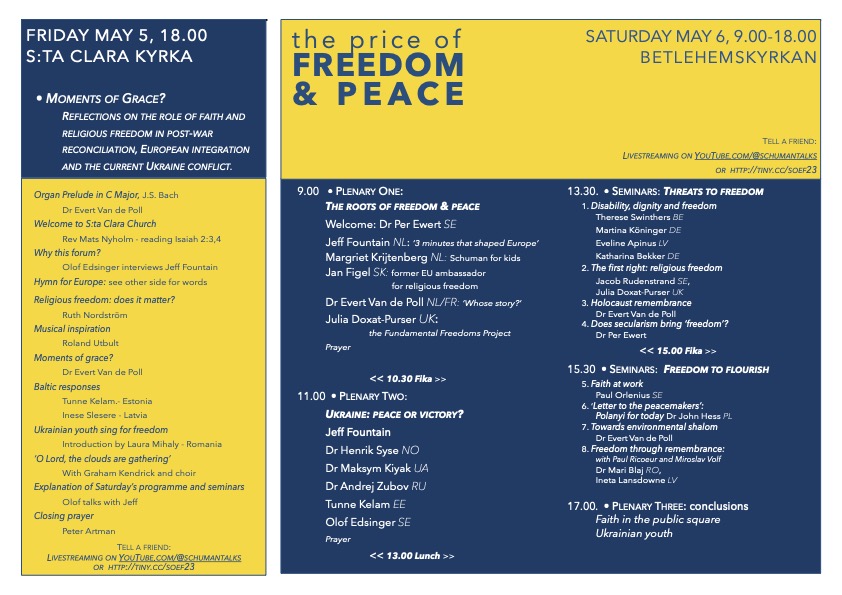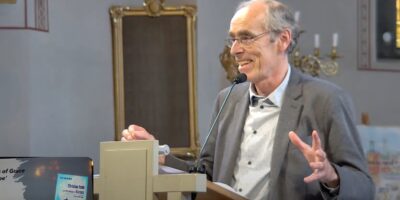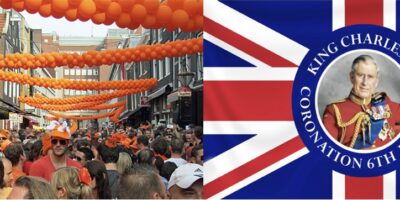Maidan Square in the heart of Kyiv is these days a blaze of red, yellow and purple tulips. They are a gift from The Netherlands to show support and appreciation to a nation under attack.
Alyona, who faithfully translates Weekly Word into Ukrainian and Russian, sent me the photos above, saying how much Ukrainians love flowers and how meaningful this gift is for them. An online search told me that an annual Ukrainian Dutch Tulip Festival began in 2020 to celebrate the friendship between the two countries. The Russian invasion has given new depth of meaning to the gesture. Over 250,000 tulip bulbs were transported to Ukraine to be planted last November, half of which on Maidan Square and other parks in Kyiv. The other half are now blooming in Lviv.
Alyona told me that last spring, after the Russian army withdrew from Kharkiv, the first thing the citizens of Kharkiv did after they cleaned up their city from the rubble was to restore their flowerbeds and plant flowers. When a woman from Ivano-Frankivsk (western Ukraine) who has a landscape business heard about this she sent several hundred seedlings of ornamental bushes and thousands of flowers to Kharkiv. For free.
Flowers are messengers. With a message from their Creator. Each flower starts as a seed ‘fallen into the ground to die’ eventually in order to produce beauty. Flowers are signs of hope in the face of death. They demonstrate God’s ability to resurrect life from death. They shout the reality of God and his presence.
As Ukrainians lose loved ones on the frontline or through Russian rocket attacks, flowers remind them that, one day, beauty will arise out of the ashes.
Apprehension
Maksym, a Ukrainian anti-corruption activist I interviewed this week, told me of his grief at losing friends through the violence against his land. ‘Good people’, he said. He shared his apprehension as expectations mount of a pending Ukrainian counter-thrust to regain occupied territories. This was no spectator sport, he stressed. Casualties among the attacking force were always much higher than among the defenders. Any military operation was going to be costly. Peace would be costly, he realised – a just peace which does not reward aggression.
That was the clear message Volodymyr Zelensky delivered on his daring visit to The Hague the day I received these photos. He told political leaders that ‘we all want to see a different Vladimir here in The Hague, the one who deserves to be sanctioned for his criminal actions here, in the capital of international law’. The aggressor had to feel the full power of justice, he added.
In various European nations this week, commemorations of the end of the Second World War have recalled the suffering endured by millions, as well as the relief and joy of liberation. Most nations emphasise peace and reconciliation, and focus on efforts to make war unthinkable. Putin however has revived the communist tradition of celebrating May 9 as victory day with demonstrations of military power. Last year he had planned to hold a victory parade after having humbled Kyiv back into vassal status, ironically in the name of Russky Mir (Russian peace). As we all know, those hopes were thwarted.
Interdependence Day
Yet for the Euroepan Union, May 9 has a different meaning. It is Europe Day, the EU’s official birthday, marking the day in 1950 when two arch-enemies, France and Germany, laid down control of their war industries as a first step towards making war unthinkable. For on that day, the French Foreign Minister, Robert Schuman, made a three-minute speech to launch the movement for European integration and interdependence. That speech laid the foundation for the European house in which today 500 million Europeans live together in peace – in less time than it takes to make a cup of coffee!
More than ever, we need to remember this moment. Not the May 9 representing the spirit of war; but the May 9 standing for peace and freedom.
That is why we hold the State of Europe Forum each year around May 9 in the capital of the country holding the presidency of the EU. I write this weekly word from Stockholm during Sweden’s presidency. Last night in the historic downtown Santa Clara Church, we opened the forum with reflections on why religious freedom matters; and on the ‘moments of grace’ in post-war history when former enemies were reconciled, and when the Iron Curtain was torn down by the soft powers of truth, love and justice.
Today we continue with a full day forum exploring the roots of freedom and peace, which go way back far beyond the Enlightenment, to Old Testament times.
You can join us in the plenary sessions online on YouTube.com/@schumantalks, either live or any time later.
May God bring beauty out of the ashes of the Ukraine conflict!

Till next week,




Excellent as always Jeff!